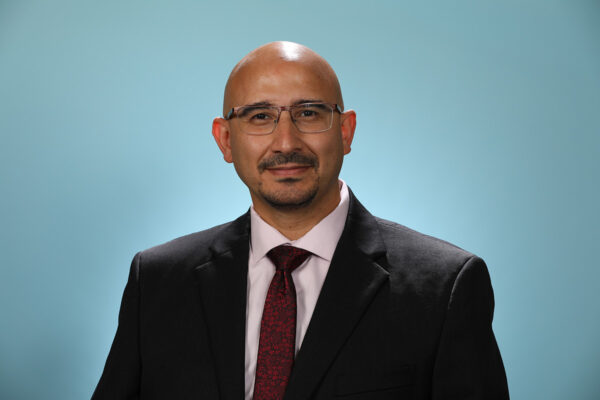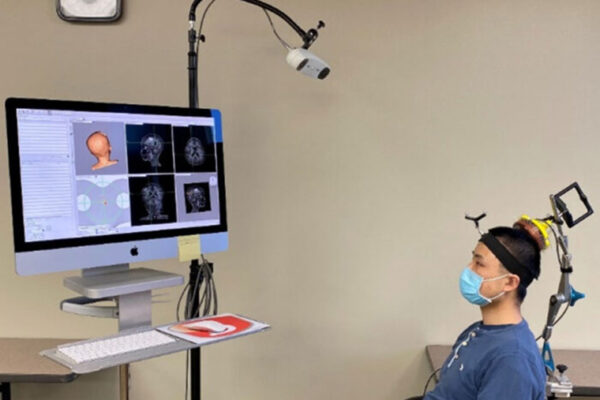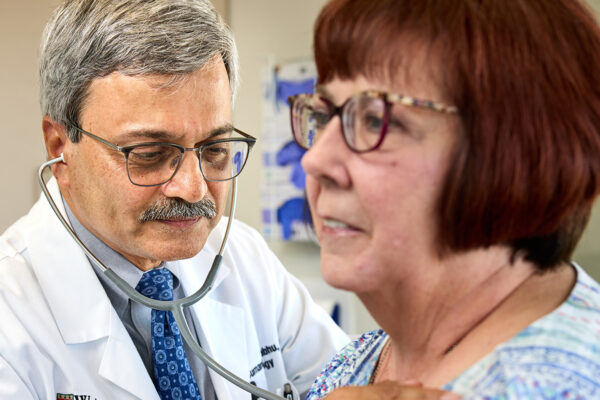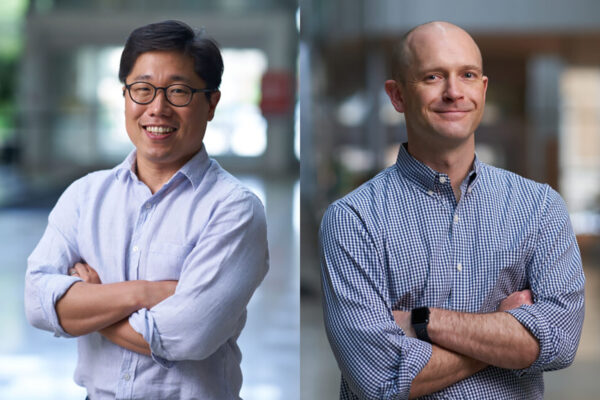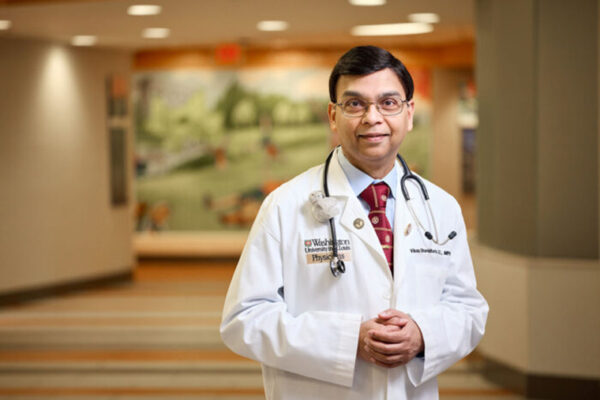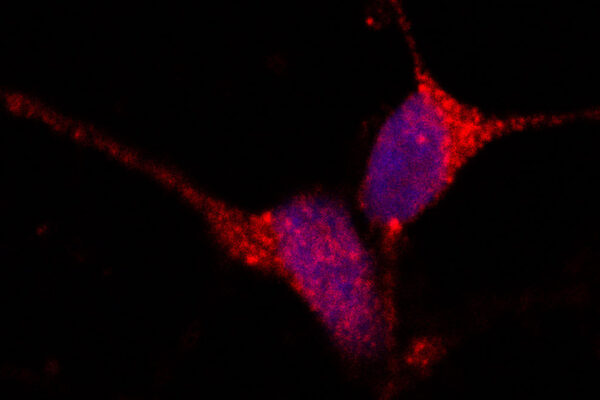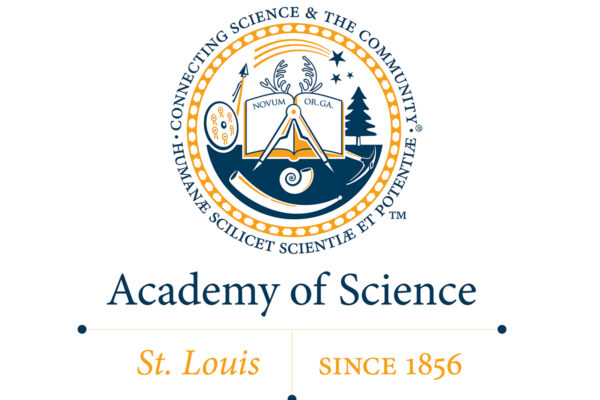Ellebedy to develop next-generation coronavirus vaccines with broad protection
Ali Ellebedy, an associate professor at the School of Medicine, and colleagues have received a $13 million grant renewal from the National Institutes of Health (NIH) for a project that will bring together experts from multiple disciplines across five research institutions to create better vaccines to fight against current and emerging coronaviruses.
Noninvasive, ultrasound-based brain biopsy is feasible, safe in people
Researchers at the School of Medicine and the McKelvey School of Engineering have developed a noninvasive technique called sonobiopsy that uses ultrasound and microbubbles to release biomolecules from brain tumors. A blood draw can collect the biomolecules to help inform treatment decisions.
Sumanth Prabhu
Sumanth Prabhu, MD, director of the Cardiovascular Division at the School of Medicine, is a heart failure specialist with a passion for patient care.
Yi and Gabel receive grants to study autism-related disorders
Jason Yi and Harrison Gabel, both at the School of Medicine, each have received two-year, $300,000 pilot grants from the Simons Foundation Autism Research Initiative. The researchers will use the funds to investigate genetic diseases that result in autism.
Chen to research kidney disease treatment
Ying (Maggie) Chen, MD, PhD, at the School of Medicine, has received a match grant of $30,000 from the Center for Drug Discovery at Washington University. The grant will help fund proof of concept and related research directed toward targeting a novel receptor to treat uromodulin-associated chronic kidney disease.
$5 million for research on immune responses to cancer-causing virus in immunocompromised kids
Researchers at the School of Medicine have received a $5.7 million grant from the National Cancer Institute of the National Institutes of Health (NIH) to investigate immune responses to a cancer-causing virus after organ transplantation in children.
Niemi receives grants to study mitochondrial function
Natalie M. Niemi, an assistant professor at the School of Medicine, received a five-year $1.9 million grant from the National Institutes of Health (NIH) for research on mitchondrial function.
How do toxic proteins accumulate in Alzheimer’s and other diseases?
Researchers at the School of Medicine have identified a key step in the development of destructive tau tangles in the brain. The discovery could lead to new approaches to treating a group of neurodegenerative diseases known as tauopathies, such as Alzheimer’s and Parkinson’s.
WashU leads new multi-omics production center for NIH research consortium
Multi-omics leverages the power of several different “omics” data types at once to build a detailed picture of factors that contribute to human health and disease. Under a $19.2 million grant award, Gary Patti, in Arts & Sciences, and Ting Wang, at the School of Medicine, will manage a new hub for multi-omics analyses at Washington University.
Academy honors six university faculty
Six Washington University in St. Louis faculty members are being honored by the Academy of Science – St. Louis for their outstanding contributions to the field. They will be recognized at an awards dinner Sept. 20 at the Missouri Botanical Garden.
View More Stories
